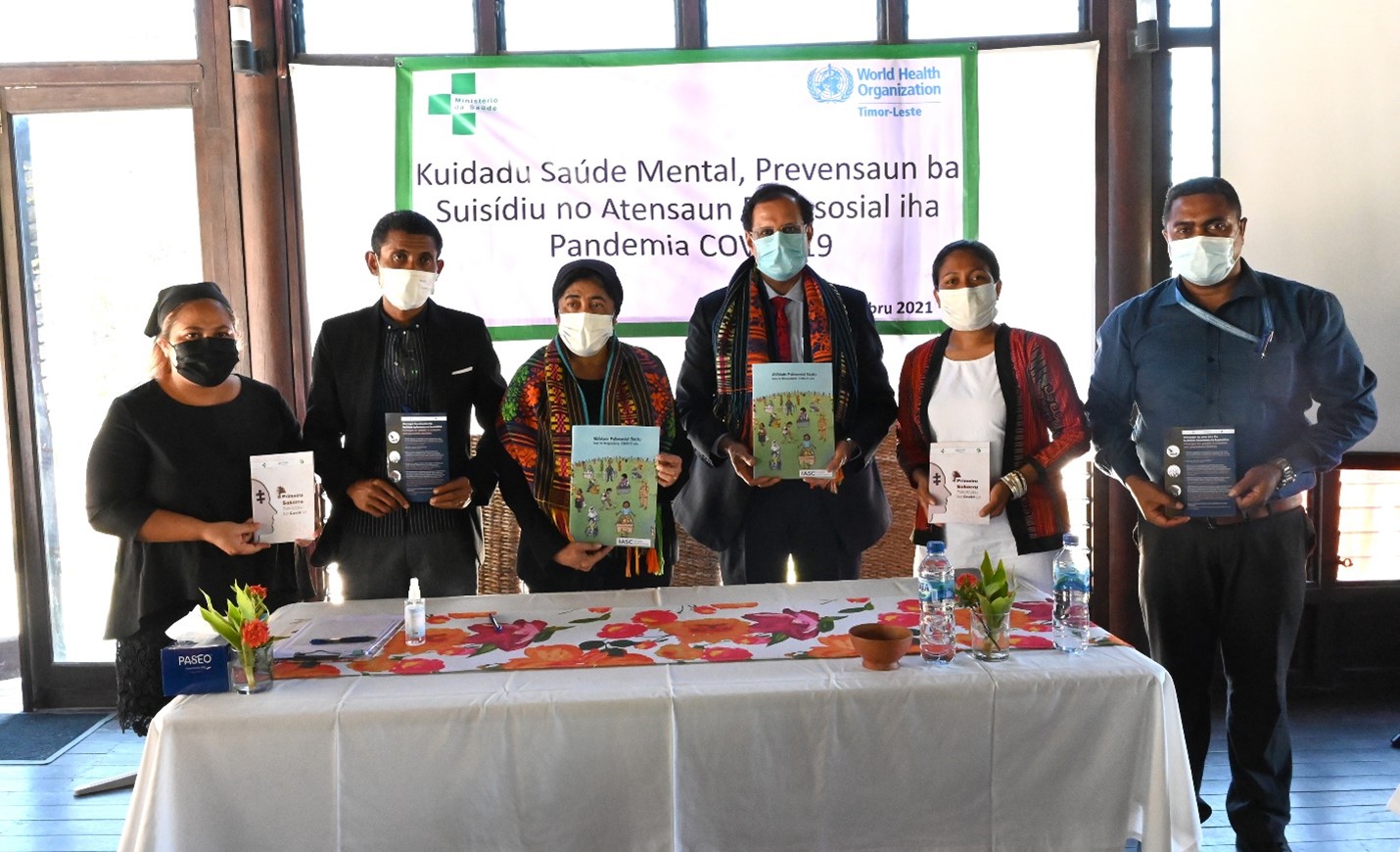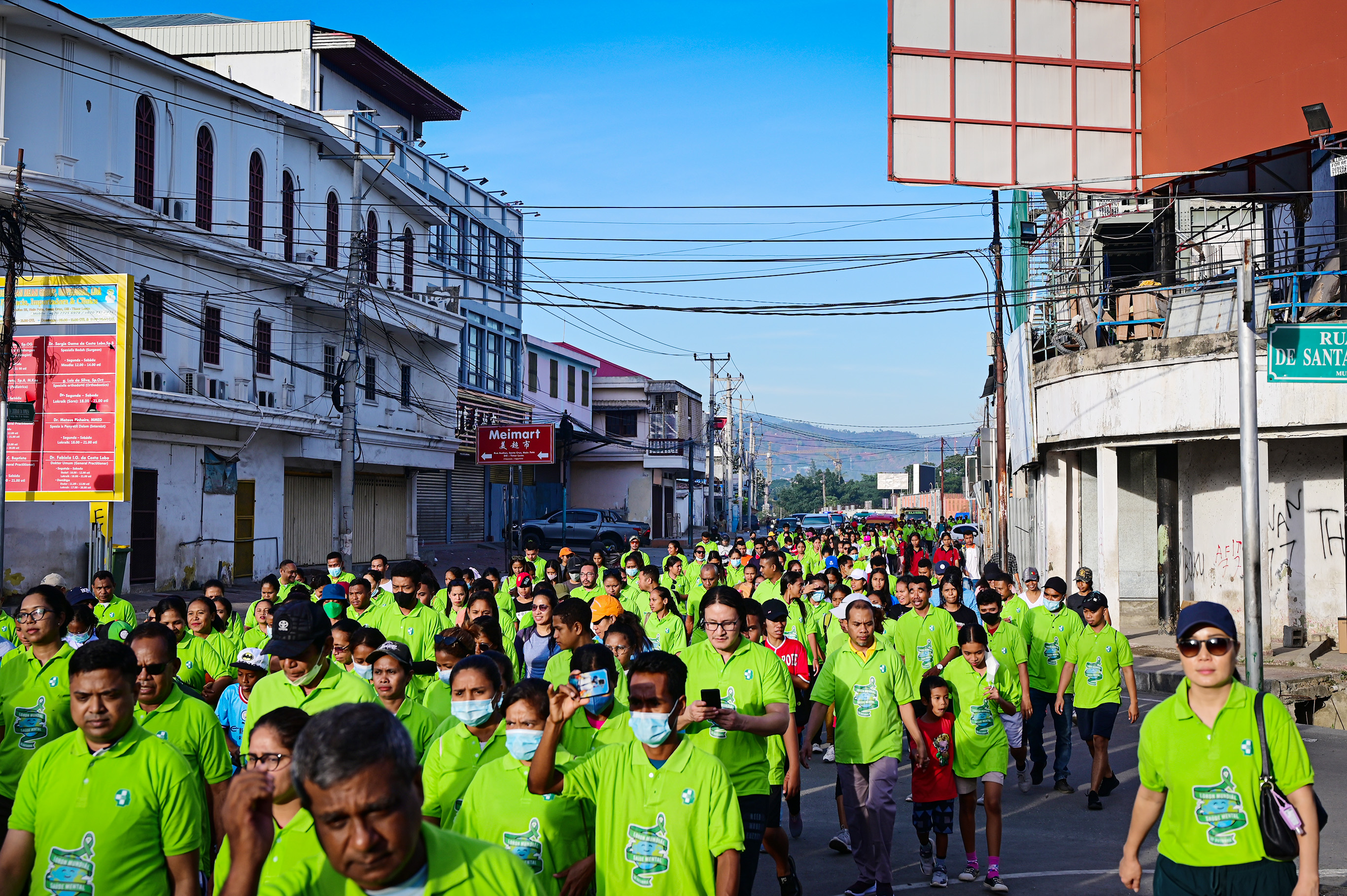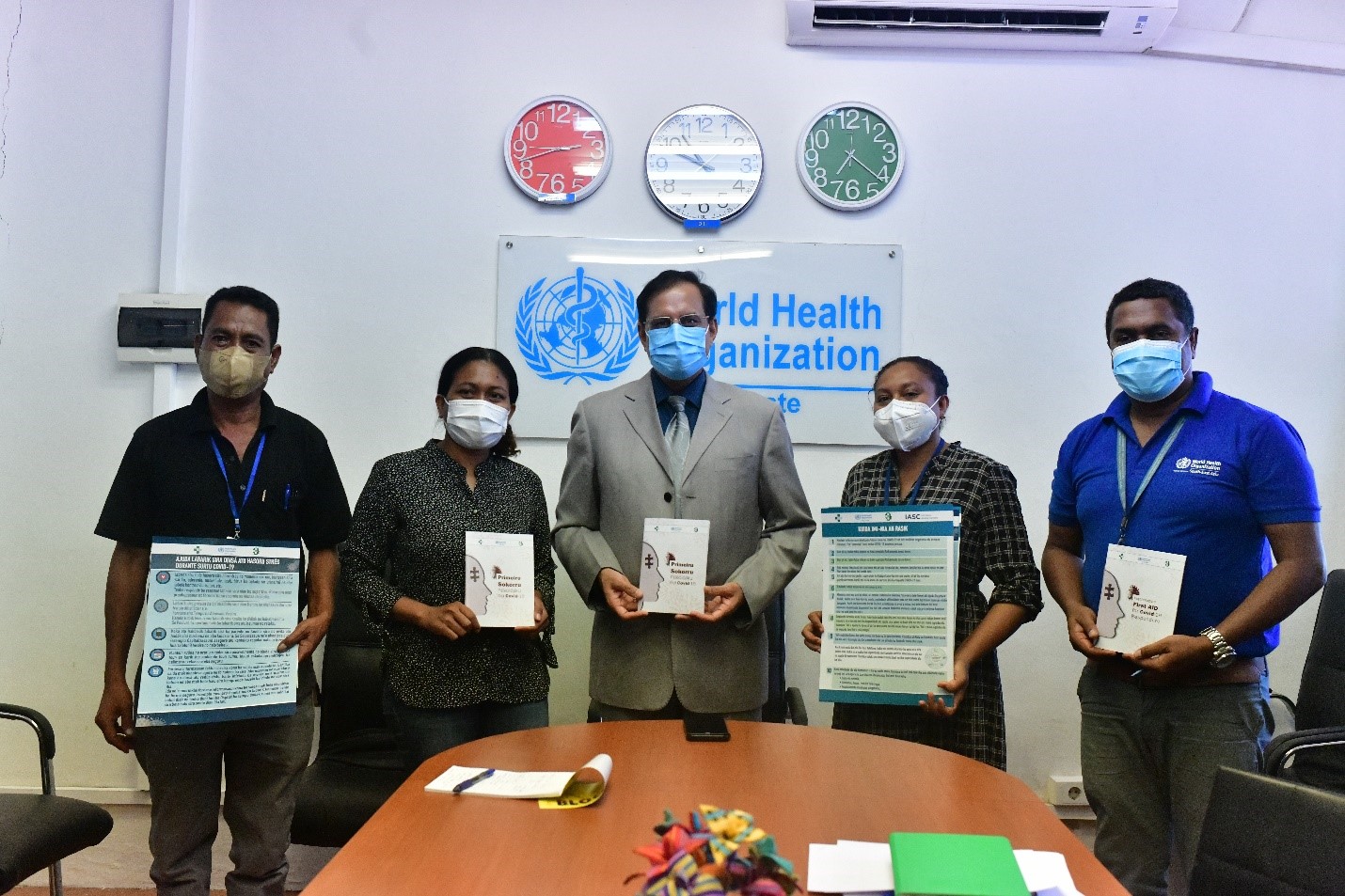In the recent past, Timor-Leste, the small island nation in Southeast Asia, has faced two serious public health challenges. First, the COVID-19 pandemic which began in 2020 put unprecedented stress on the country’s healthcare system, and then the devastating flash floods in 2021 caused severe damage to life and property. Both the crisis put a spotlight on the mental health impact on the people, and the need to strengthen mental health services in the country.
The World Health Organization’s country office in Timor-Leste has been working on multipronged strategies to promote and strengthen mental health care that include policy designing, capacity building and raising awareness. The country office has provided technical support to develop a comprehensive Mental Health Strategy document (2018-2022) and is already in the process of reviewing and updating it for the next five years.
Soon as the pandemic hit, WHO partnered with the Ministry of Health to offer basic psychosocial skill training to all healthcare workers, especially for the ones who were posted in quarantine and isolation centres. The WHO also supported in developing training guides and pocketbooks for COVID-19 first responders on Mental Health and Psychosocial Support (MHPS) and psychological first aid. The Ministry of Health was quick to adapt the guidance and train all cadres of healthcare providers with its help.
The first responders widely used the training guidance and pocketbooks during the pandemic, when a large number of people suffered from mental distress, and also after the flash floods in Dili that added to the burden.
 WHO supported session on MHPS for frontline workers held at Tibar sub district in October 2021. The WHO representative also handed over IEC material for mental healthcare and suicide prevention to the Ministry of Health during the event. (WHO Timor-Leste/Nalda)
WHO supported session on MHPS for frontline workers held at Tibar sub district in October 2021. The WHO representative also handed over IEC material for mental healthcare and suicide prevention to the Ministry of Health during the event. (WHO Timor-Leste/Nalda)Over the past two years, a wide variety of WHO communication materials focussed on mental health and well-being such as posters and videos were adapted to the local language and disseminated across the isolation and quarantine facilities, hospitals, and public places.
“Mental health is at the core of our good health and well-being,” said Dr Arvind Mathur, WHO Representative to Timor-Leste. “The COVID-19 pandemic not only exacerbated the burden of mental health issues, but it also highlighted the urgent need of strengthening Mental Health and Psychosocial Support (MHPS) in health facilities at all levels. In Timor-Leste, the WHO country office continues to support the MOH in raising awareness about mental health issues, developing comprehensive mental health strategy and plan and strengthen the mental health service delivery at all levels across the country,” he added.
WHO country representative Dr Arvind Mathur hands over mental health IEC material to the MoH in September 2021. (WHO Timor-Leste/Nalda)
To commemorate the World Mental Health Day this year, the WHO country office organized a Walk the Talk event which saw encouraging participation from people across Dili, the capital city of Timor-Leste.
“To promote mental health, raising awareness is the key,” said Dr Edmundo Monteiro, who is one of the only two psychiatrists in the country. Dr Monteiro practices in Dili’s Hospital Nacional Guido Valadares (HNGV). “Many people are completely unaware about mental health issues, and they tend to link it to the homeless people or someone who is extremely violent. There is little awareness about mental health issues such as stress, anxiety and even depression, which can have a tremendous impact on one’s personal and professional life,” he said.
 WHO’s Walk the Talk to promote mental health in Dili on October 15. (WHO Timor-Leste/Cirilo)
WHO’s Walk the Talk to promote mental health in Dili on October 15. (WHO Timor-Leste/Cirilo) In addition to the mental health Outpatient Department (OPD), HNGV has a 12-bed in-patient facility for acute cases. Patients who require longer duration of admission are often transferred to the Centro de Apoio à Saúde S. João de Deus facility in Laclubar, about 100 km from Dili. To support the transfer of patients from different parts of the country, the WHO has provided a rented vehicle which acts a dedicated ambulance service for mental health.
Dr Murao Da Silva, head of the psychiatric department at HNGV said that continuous sensitization of the community on mental health issues is crucial. “People will step forward to seek help only when they are aware about mental illnesses. We have a 12-bed in-patient facility, but our bed occupancy is just about 50%. There might be so many people out there who need help but don’t have the required awareness to seek it or are afraid to do so because of the fear of stigma and discrimination,” he said.
Public events like the Walk the Talk can drive the required change. The WHO is committed to continue the awareness campaign to start dialogues and normalize the conversation around mental health.



